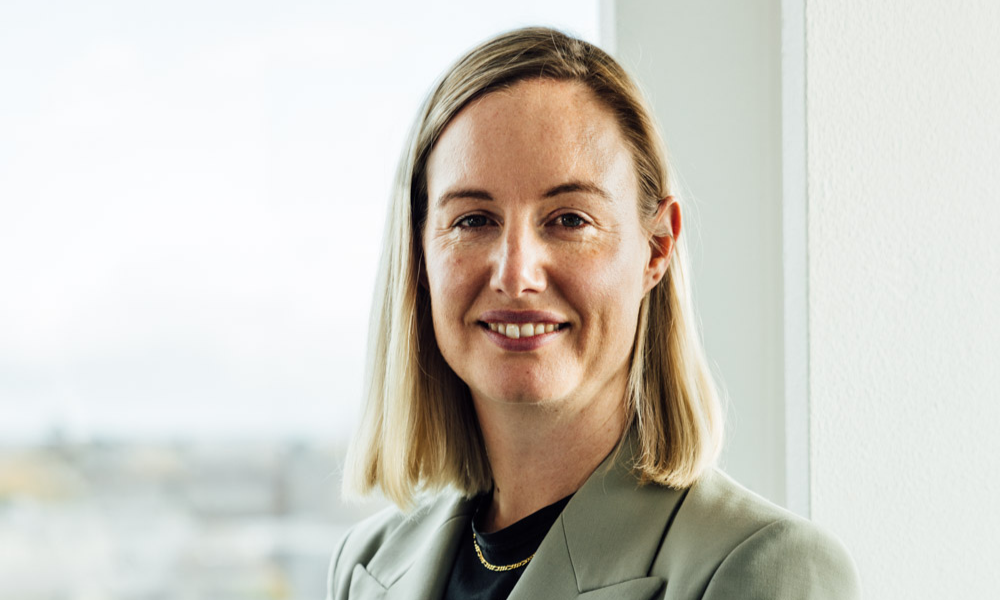
"There aren't any silly questions", the Anthony Harper lawyer says

Lucy Robinson’s legal career has taken her to the UK and back to New Zealand, and having to make that adjustment became a challenge.
The Anthony Harper special counsel admits that there was a point wherein she felt like she was a junior lawyer again, but the experience also helped her to realise the value of getting to go back to basics and ask all kinds of questions in order to better serve clients.
In the second part of this August interview, Robinson tells NZ Lawyer about the struggle of learning new terminologies, the fulfilment in working with long-term clients, and the collaborative nature of property law.
What would you say is the best part of being a property specialist?
I think the best part is that you can see the real-life results of what you're doing, like when you've got a big project that you can go to the opening for. When I was in UK, they'd have Golden Bricks topping off this whole range of stages in a development that are milestones and are a success. You can see the effect of what you're doing and what your clients are doing, which I think is a really cool part.
It's also collegial; both parties generally want the deal to go ahead, and so whether we're acting for a vendor or a tenant or a landlord or a purchaser, you can appreciate that everyone wants this transaction to happen and works together.
Did you encounter a particular memorable matter in this space?
Some of the projects that I've really enjoyed are the ones where you've been involved for a really long time. When there's the opening – hotels finally open, or a deal has gone through – you can celebrate with the client and be part of the success.
I think the things that I enjoy are where you've been working with clients for a really long time, so you know what they like and what they don't like, and you feel like you're part of their team. And then you can contribute to what they're actually doing in a longer term sense, rather than the one-off transactions.
What was the biggest lesson you’ve learned in your career thus far?
I think changing jurisdictions twice – probably two of the biggest changes I've had in my career. I haven't had a very linear career, and I've moved around quite a bit. The lesson I've learned from that is that you can feel like an absolute fish out of water. For any lawyers thinking of doing an OE, it is hard to change jurisdictions, especially after feeling like you are confident and competent and know what you're doing, and then realising, “actually this is quite different to what I'm used to, all of the jargon is completely different”.
It takes time to learn new terminology again and time to build up your confidence again. But I think going through that gave me a bit of confidence in my skills, because I could pick it up eventually. It just took time to get up to speed and feel that you're helping and contributing again.
What advice can you give fellow lawyers about it?
It gives you practice in asking questions, because that is one of the best things that lawyers do. Is this the right thing to do? Why are you doing it this way? What about this other way? And when you don't know what people are talking about, you naturally get really used to asking questions – even basic questions like, “What does that mean? What do you mean when you say that?” And I think that was good practice – just going back to basics, and remembering that there aren't really any silly questions. You need to understand as much about your client's business and their industry and what they're doing as you can, because that makes you a better part of their team.
Was there a point where it was hard for you to ask those kinds of questions?
Definitely. I think after I changed jurisdictions, it felt like I was a junior lawyer all over again. You feel like you'll never pick it up – it's too vast, it's too wide, everyone else knows what they're doing, and you're kind of floundering a little bit again. So I just had to get over that and think, “I have to ask, because I don't know what they mean by ‘engrossing this deed’ ” (and it just means printing). There's just such different terminology.
Property is a handy area to practice in if you are traveling, because the concepts are really similar. You're swapping money for land or security – the theories are all the same. So it's just getting up to speed with the terminology and the way things actually work in practice. There were times when I'd take notes of all the things in a meeting, and then ask a trusted colleague or someone that I could go and say, “hey, these are all the words that I didn't understand in that meeting”. So it's definitely about having someone that you can ask all those questions to and making sure you've got their support.
Next week, Robinson tells us her thoughts on AI and what work-life balance looks like.